15 Best Intercom Alternatives in 2026 (Pricing, Limits, Use Cases)


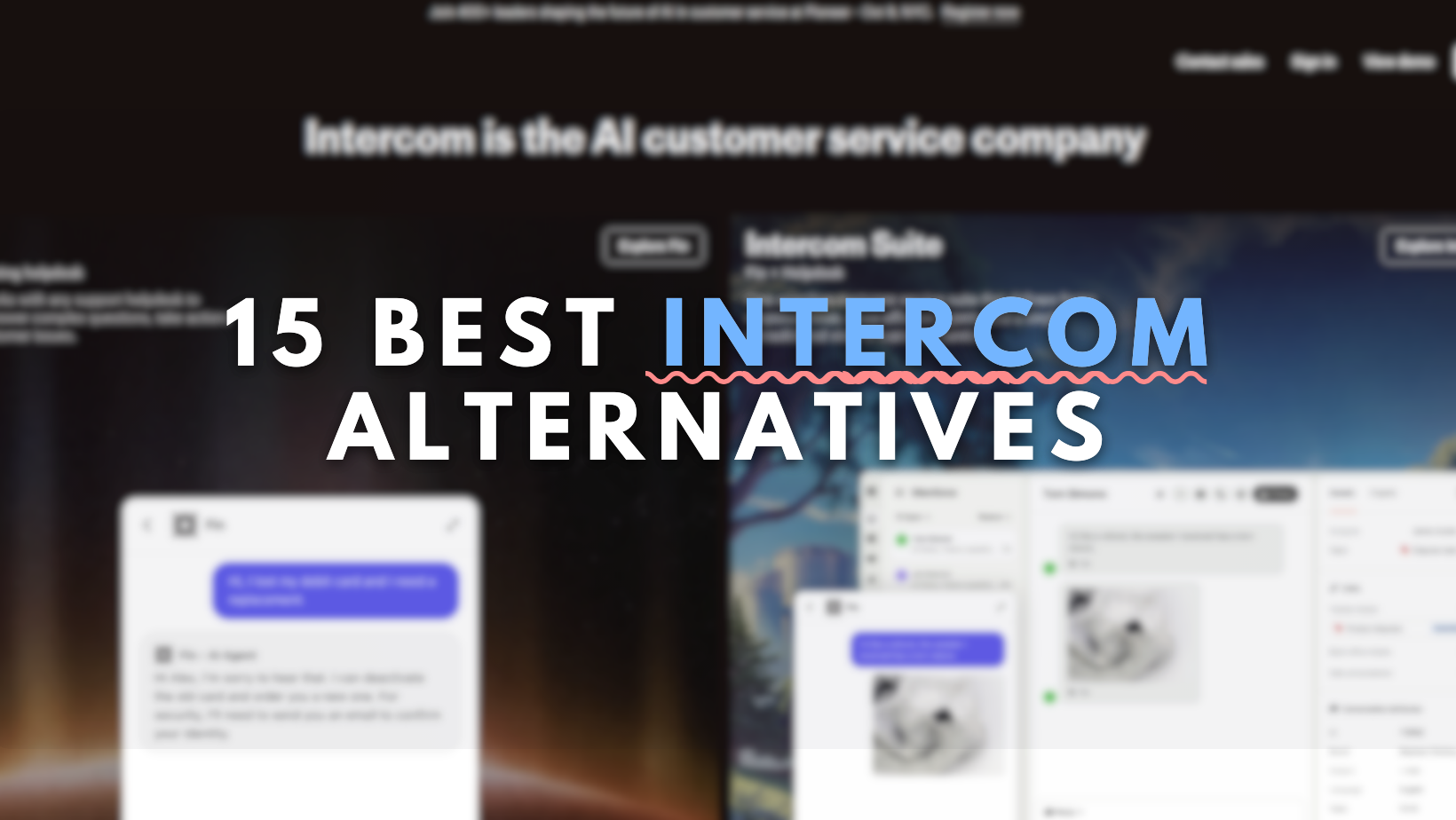
Intercom is a well-established platform for customer support messaging, and AI-driven engagement. However, as teams scale, many start evaluating alternatives due to rising costs, complex implementation, and limited flexibility around advanced AI workflows.
For growing businesses, the focus often shifts toward platforms that offer predictable pricing, easier setup, and stronger alignment with modern AI support. Teams also look for solutions that can handle conversations across channels without added operational overhead.
As a result, more companies are actively comparing Intercom alternatives to find the right balance between affordability, usability, multichannel support, and long-term scalability.
This guide reviews 15 Intercom alternatives in 2026, evaluating each platform based on pricing transparency, AI capabilities, setup complexity, and the type of business it fits best. Whether your priority is cost efficiency, enterprise-grade workflows, or AI-first automation, this comparison is designed to help you make a faster and more confident decision.
For modern customer support, teams prioritise predictable pricing, faster setup, multichannel coverage, and AI that can do more than reply to messages.
Tip: For modern customer support, start with YourGPT to automate actions across channels, then evaluate traditional helpdesk tools only if deep ticketing or compliance is required.
Intercom faces several limitations that lead businesses to consider alternatives, we have listed some issue on intercom based on publicly available information and users experience:
1. High Costs at Scale
Intercom can become expensive as businesses scale, especially affecting smaller teams that need predictable pricing.
2. Complex Setup and Maintenance
Setting up Intercom effectively may require significant technical expertise, developer resources, or ongoing management, which smaller teams might find demanding.
3. Limited AI Customisation
Intercom includes AI capabilities, but some businesses seek alternatives that offer greater customisation, self-learning capabilities, or simplified no-code AI agent builders.
4. Integration Gaps
Businesses reliant on niche tools or specialised software often encounter integration limitations with Intercom, leading them to platforms with broader compatibility.
5. Support Responsiveness Concerns
Some users have raised concerns about the responsiveness and helpfulness of Intercom’s customer support, impacting the timely resolution of issues.
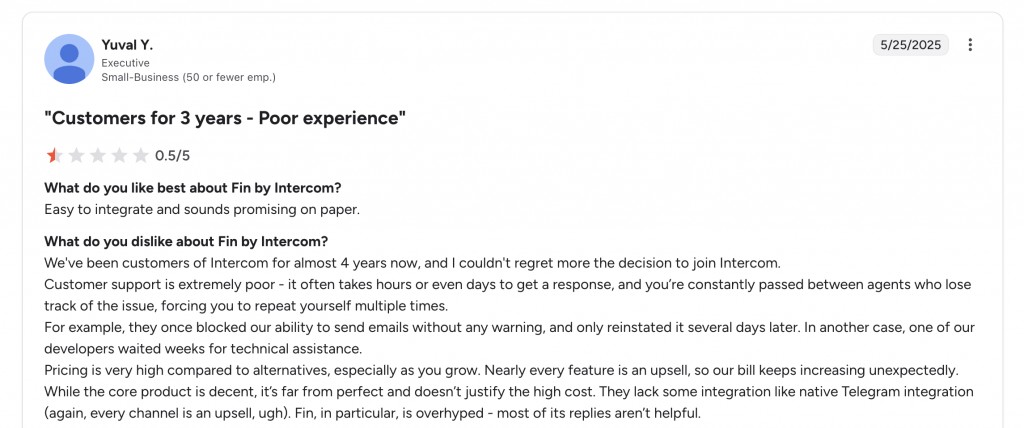
To simplify your decision, we’ve compiled a detailed review of the 15 best Intercom alternatives for 2026. Each summary covers the essential factors: features, pricing, and the type of business it serves best.

YourGPT is an AI-first, no-code platform for building and deploying conversational AI agents. It enables businesses to deliver fast, personalised interactions across customer support, sales, and automation via websites, WhatsApp, Slack, Messenger, Instagram, LINE, email, and voice. Its advanced AI capabilities and extensive customisation capabilities make it flexible for diverse business requirements.
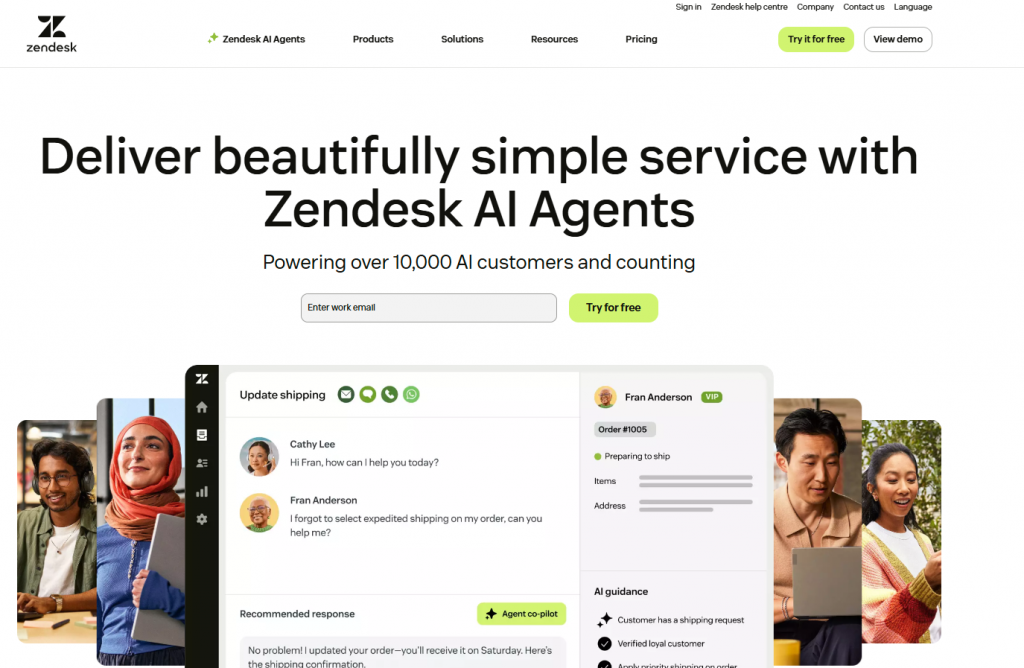
Zendesk is one of the most established enterprise-grade helpdesk solutions. It delivers advanced ticketing, automation, and omnichannel communication to support global customer operations.

Yellow.ai is an enterprise conversational AI platform offering intelligent automation across chat and voice. It uses advanced NLU and orchestration to handle complex customer journeys.

Ada is an AI-first automation platform focused on customer service. It empowers teams to create no-code chatbots that deliver personalised and scalable support.
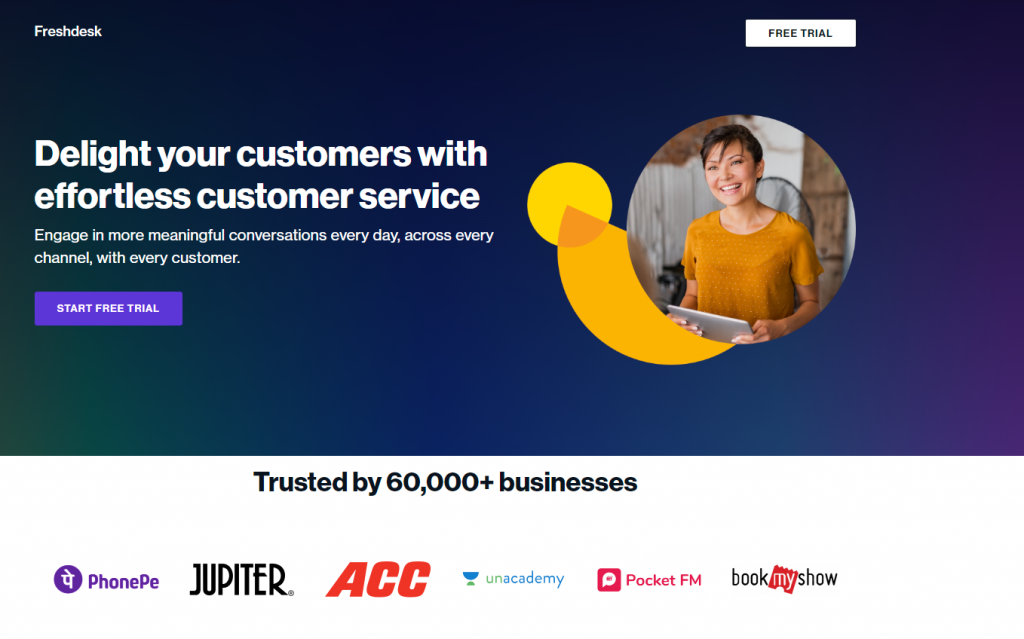
Freshdesk is a cost-effective customer support platform with robust tools and Freddy AI to help automate repetitive tasks, making it popular among SMBs and mid-sized teams.

Drift focuses on conversational marketing and sales automation, turning website visitors into qualified leads through AI-powered chat and integrations with sales tools.
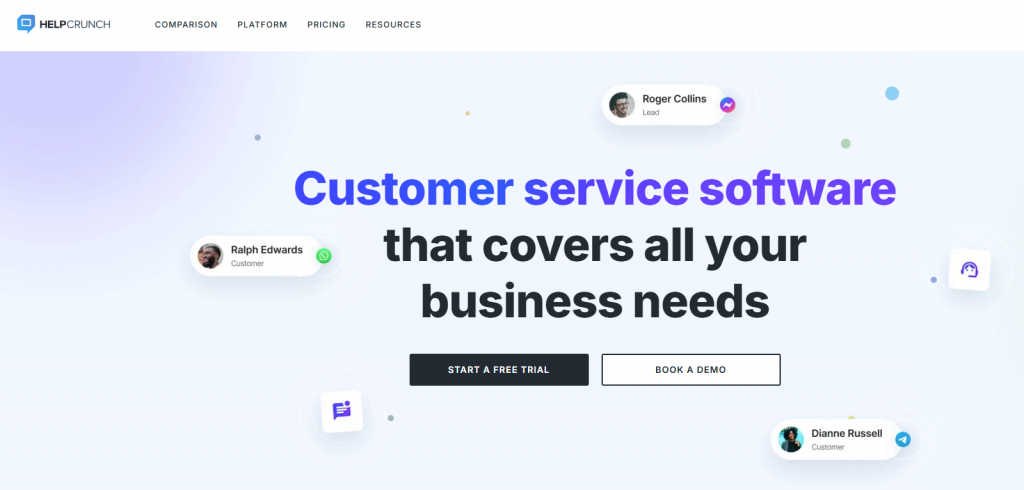
HelpCrunch combines live chat, email automation, and knowledge base tools, providing an affordable Intercom alternative for SMBs.
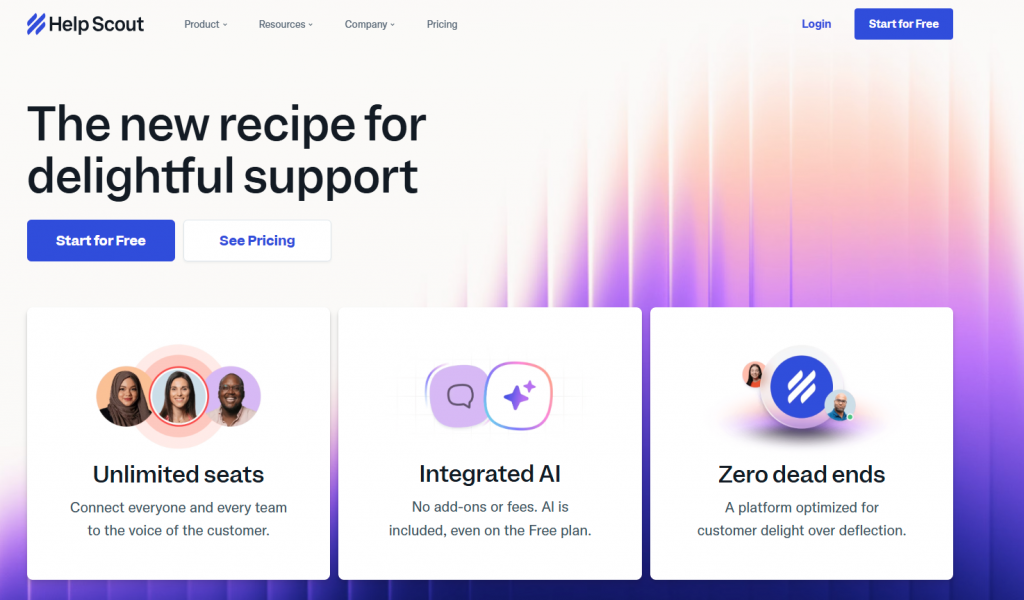
Help Scout delivers simplicity and collaboration, with a people-first approach to support.
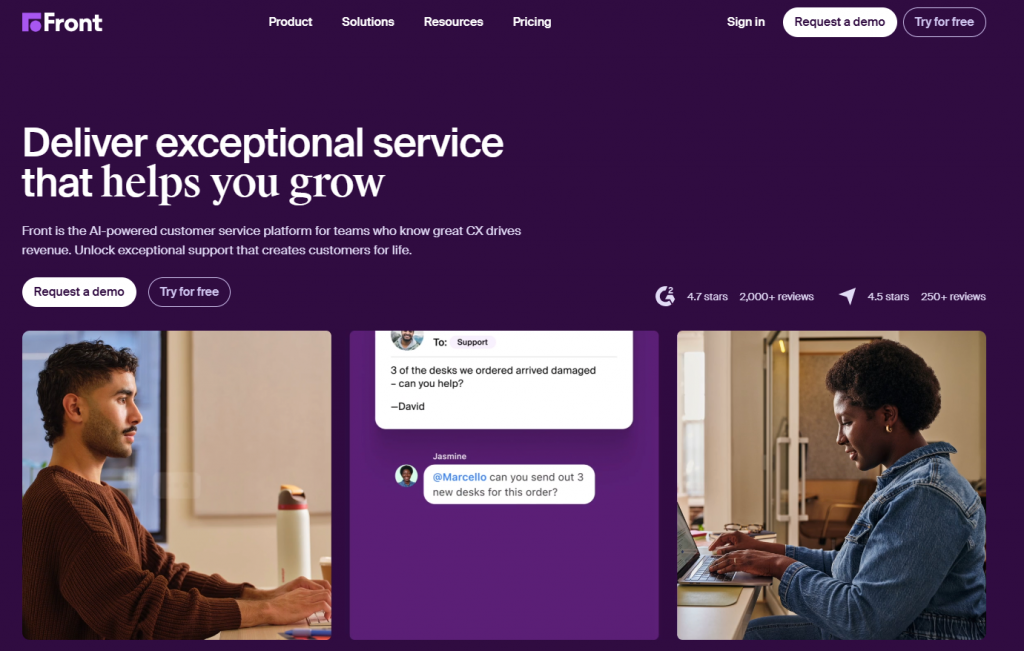
Front merges email, chat, and collaboration features into a shared inbox, making teamwork around customer conversations seamless.
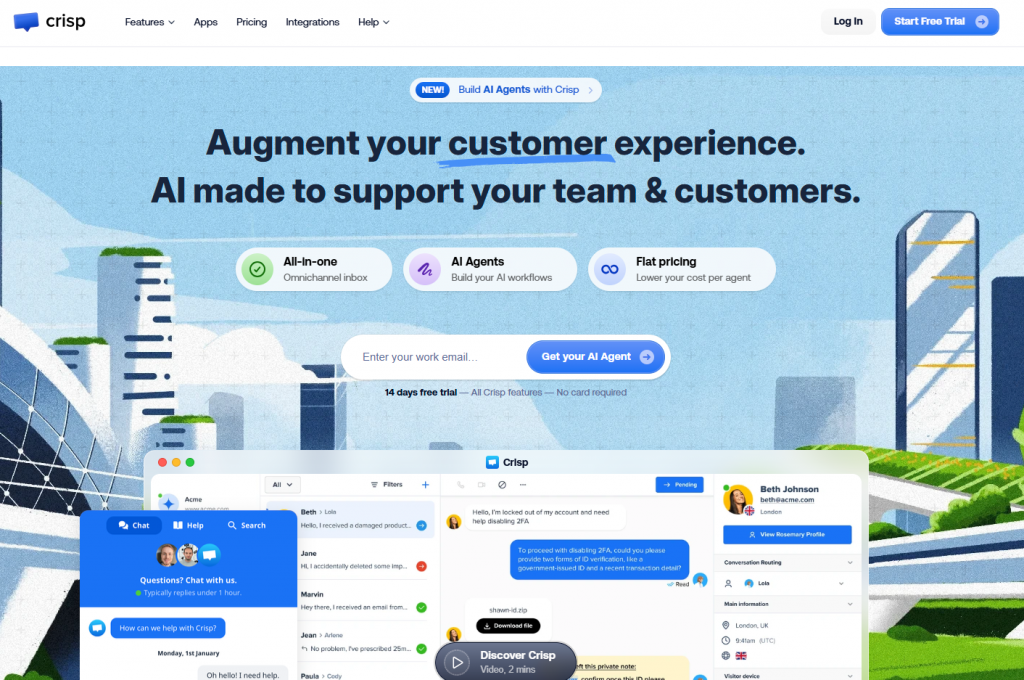
Crisp is a messaging suite offering multichannel support, automation, and a wide range of SMB-friendly tools.

Tidio combines live chat and no-code chatbot automation, especially popular with ecommerce.
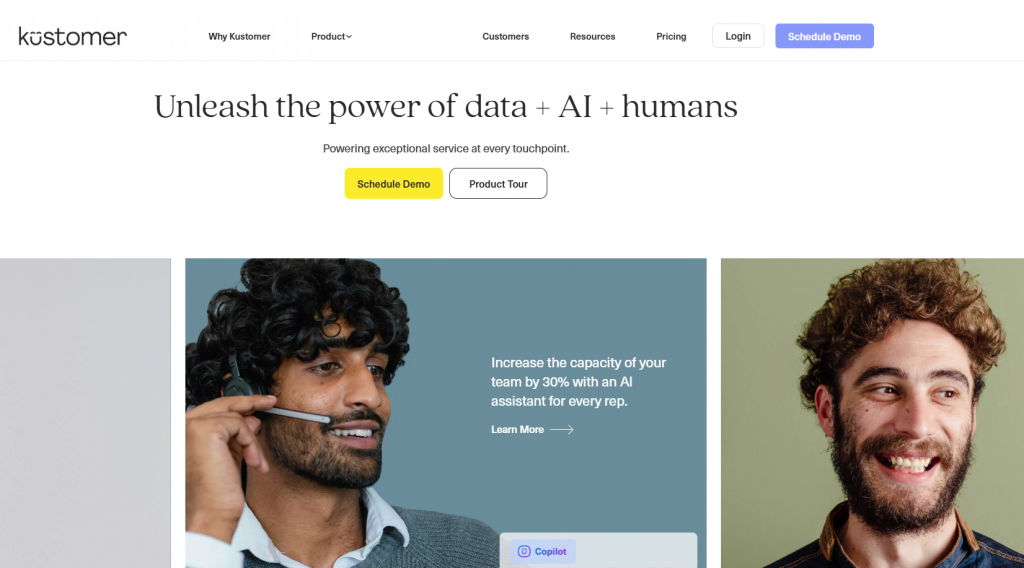
Kustomer takes a CRM-first approach to customer service, providing unified timelines and advanced workflows.

Gorgias is designed for ecommerce brands, offering automation tied closely to Shopify and other platforms.
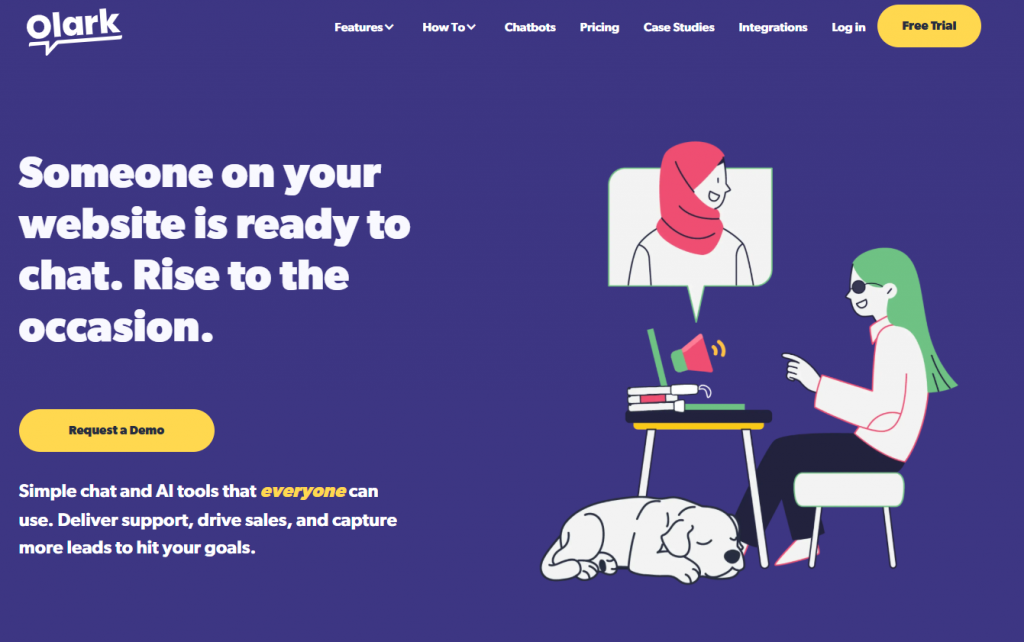
Olark offers simple, no-frills live chat for small businesses.
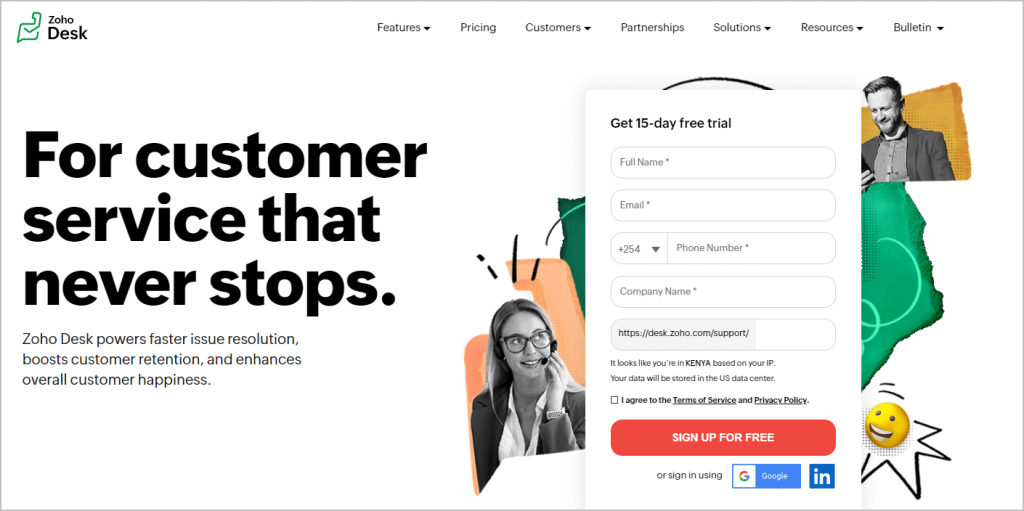
Zoho Desk is part of the Zoho ecosystem, offering ticketing, automation, and AI through Zia.
Replacing a core business tool like Intercom requires a systematic evaluation, not just a feature-for-feature comparison. Focus on these five operational criteria to select a platform that actively supports business growth rather than creating new limitations.
Your customer support and sales teams should be able to modify workflows and update responses without developer intervention. Prioritise a no-code platform to eliminate technical bottlenecks and empower your teams to adapt to customer needs in real time.
Vague pricing models lead to unpredictable operational costs that impede scaling. Demand clear, published pricing structures that allow you to forecast expenses accurately as your usage grows, without hidden fees or surprise enterprise quotes.
A new platform must augment, not disrupt, your existing operations. Verify that it offers robust integrations with your core business systems, including CRM, helpdesk software, and e-commerce platforms, to ensure a unified data flow.
Your customers expect to connect with you on their preferred channels, not yours. An effective alternative must centralise conversations from platforms like WhatsApp, Instagram, and Messenger into a single view, providing a consistent customer experience everywhere.
The primary goal of a modern support platform is to scale service delivery without linearly increasing headcount. An AI-driven core is non-negotiable. It should automate the resolution of repetitive queries, allowing your human agents to focus on high-value interactions that drive customer loyalty.
A Note on Comparing Price vs. Value
You will not find a direct price-to-price comparison in this analysis. Choosing a platform based solely on its monthly cost is a strategic error, as the cheapest option often incurs the highest operational cost through manual work, poor integrations, and an inability to scale.
The critical metric is not price, but the return on investment. Evaluate each Intercom alternative based on the value it delivers—its ability to reduce repetitive tasks, unify customer channels, and support growth without a proportional increase in your team’s headcount.
Most businesses switch from Intercom due to rising costs, setup complexity, and limited flexibility as usage scales. Many look for alternatives with clearer pricing, simpler workflows, and stronger AI automation.
YourGPT is an AI-first, no-code platform built for modern customer support across multiple channels. It enables AI agents to take real actions, run no-code workflows, and improve through self-learning without heavy developer dependency.
Ecommerce teams often evaluate platforms that integrate with stores and automate order-related support. Tools such as YourGPT and Gorgias are commonly used to handle order tracking, refunds, and customer enquiries across chat and messaging channels.
Large enterprises commonly use platforms such as Zendesk, Freshdesk, or enterprise deployments of YourGPT to support advanced workflows, compliance requirements, reporting, and high-volume operations.
Yes. Startups and small teams often choose platforms such as YourGPT, HelpCrunch, and Zoho Desk for scalable support automation without enterprise-level pricing.
Most Intercom alternatives support integrations with common business tools such as CRMs, ecommerce platforms, analytics systems, and collaboration software. This connects customer conversations to your existing workflows and data.
Setup time depends on the platform and use case. No-code tools such as YourGPT can often be configured within hours for standard workflows, while enterprise-grade systems may take longer for configuration, migration, and training.
No. Many platforms also support sales qualification, internal helpdesks, and operational automation. YourGPT is commonly used across support, sales, and operations from a single system.
Some modern platforms, including YourGPT, support voice-based automation and intelligent call routing. This helps teams handle high-volume queries and route complex issues to the right people faster.
Start by defining your priority: pricing predictability, AI automation depth, multichannel coverage, or enterprise ticketing. Teams focused on action-taking AI agents and multichannel automation often evaluate YourGPT, while teams with complex ticketing workflows may prefer established helpdesk platforms.
Choosing an Intercom alternative requires a clear-eyed assessment of your business’s operational goals. While many platforms address isolated needs like e-commerce support or basic ticketing, they often create new silos. The objective is not just to replace a tool but to adopt a system that unifies communication and reduces complexity.
For businesses that prioritise scalable efficiency without developer dependency, YourGPT presents a definitive advantage. It is built as an
AI-first, no-code platform that centralises customer and internal conversations across critical channels like WhatsApp , Slack , Instagram , and Messenger. This structure allows you to automate support workflows, manage sales funnels, and handle internal operations from a single, intelligent dashboard.
Ultimately, teams that need a unified, AI-driven platform with no-code control often evaluate YourGPT alongside other leading Intercom alternatives. It is engineered to scale from small teams to enterprise-level demands, delivering a measurable reduction in manual tasks and consolidating your communication channels from the moment of implementation.
YourGPT helps teams replace complex chat setups with AI agents that automate real support actions across web, WhatsApp, email, and more.
7-day free access • No credit card required • Works with Shopify and WooCommerce
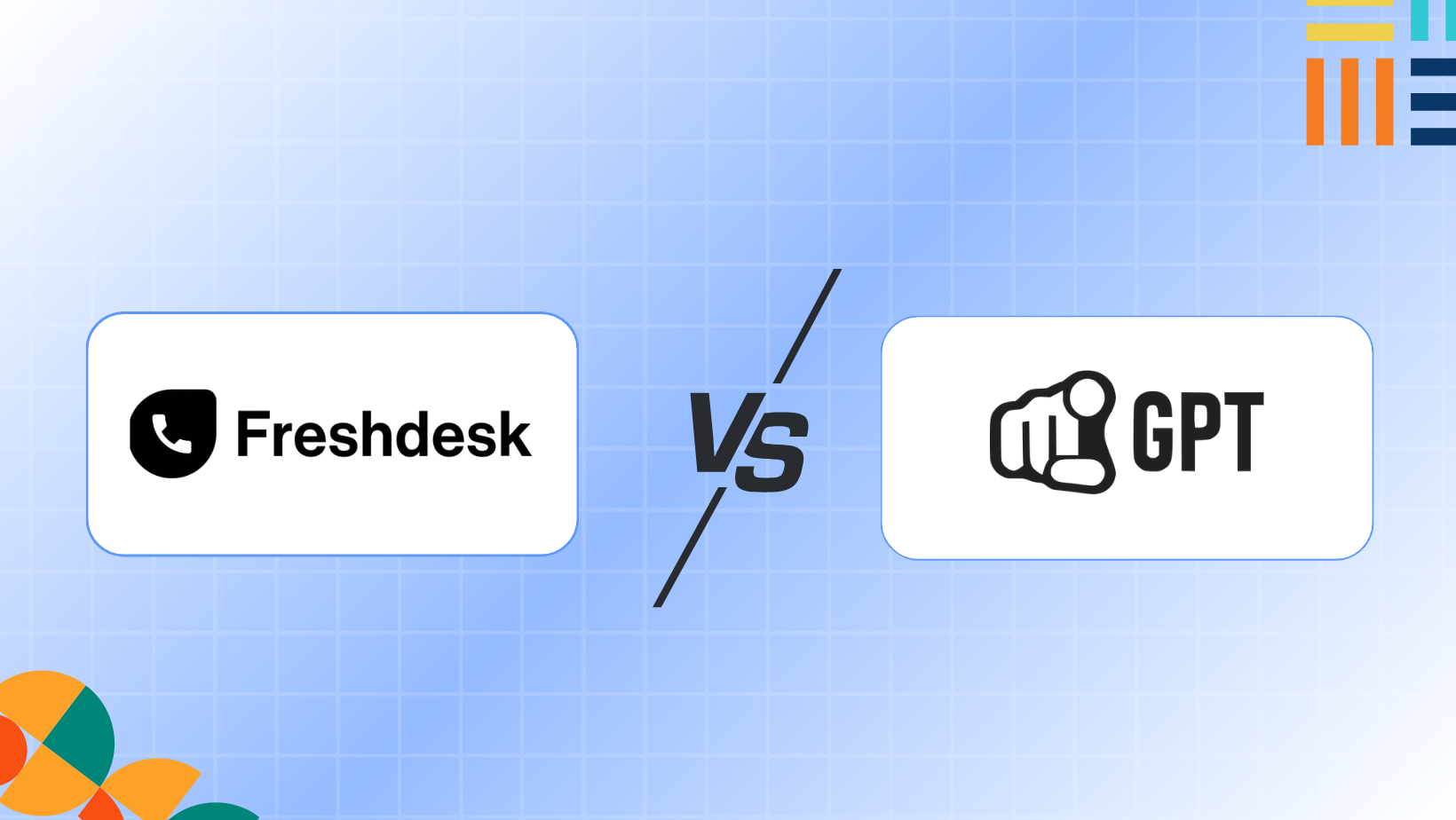
TL;DR: The Core Difference YourGPT Built around AI agents that handle conversations, run workflows, and resolve issues on their own across channels. The goal is to reduce incoming support volume by solving problems before they reach a human. Freshdesk Built around structured ticketing. It focuses on organizing queues, managing SLAs, and tracking agent performance. Humans […]


TLDR Zendesk works well for ticket-based support, but it can feel limiting as teams rely more on automation and multi-channel conversations. This guide compares 7 practical Zendesk alternatives that reduce manual handling and let AI manage common requests across chat and messaging tools Zendesk is one of the popular customer support platform has been around […]

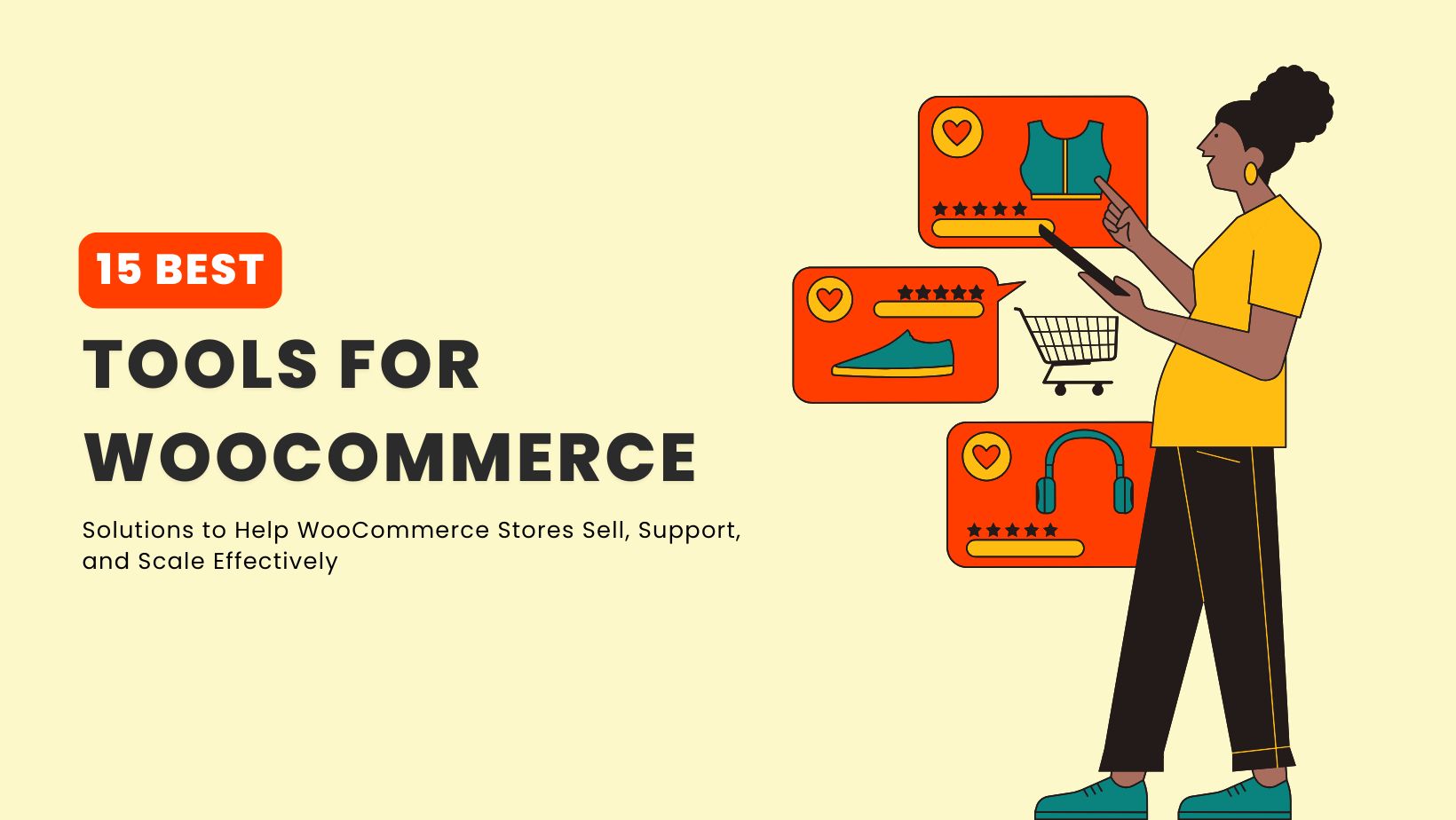
WooCommerce gives store owners flexibility, but that flexibility comes with trade-offs as a store grows. Over time, pages slow down as plugins accumulate, carts get abandoned without obvious reasons, and customer questions start consuming more time than expected. These issues rarely appear all at once, but they compound quickly and directly affect revenue. After working […]

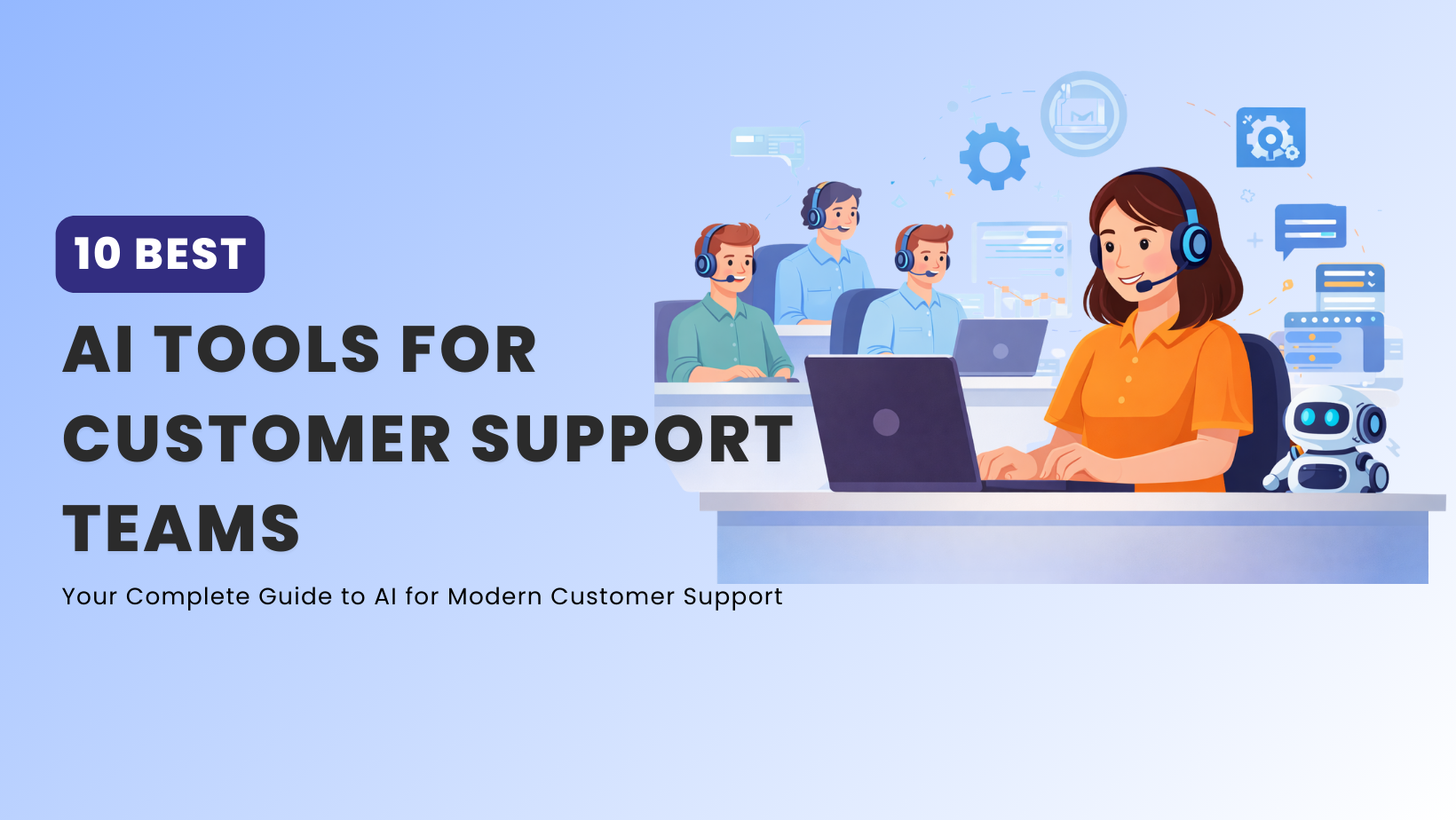
AI customer support tools now form a core part of how many teams handle growing contact volumes and rising customer expectations. At the same time, the market has become crowded, with many similar-looking products and overlapping claims, which makes evaluation harder for support leaders. The AI customer service segment grew from about $12 billion in […]


If you run an Instagram account for business in 2026, you already feel the pressure. The platform has 2 billion monthly users now. About 44% of people on Instagram shop every week, and most expect you to reply to their messages in under an hour. Between creating posts, Stories, and Reels, answering DMs, responding to […]


TL;DR Growing startups struggle with rising support volume and limited teams. AI chatbots automate repetitive queries, keep responses consistent, and scale support without extra headcount. Based on 48+ hours of our testing, we evaluated platforms across setup time, accuracy, AI capability, pricing transparency, and real-world performance for startups. AI chatbots help startups manage customer support […]
